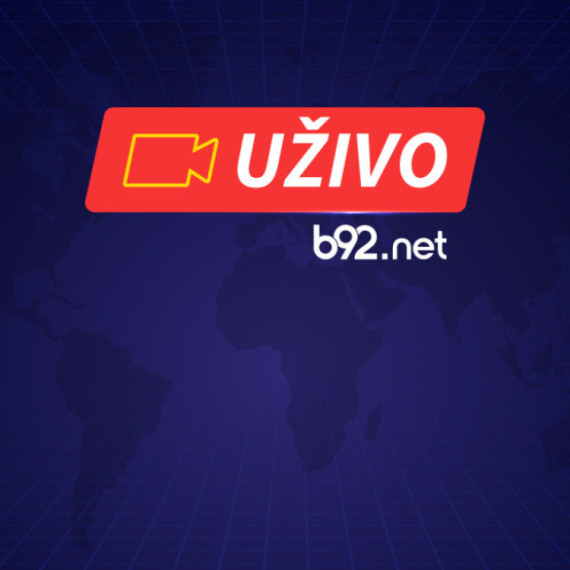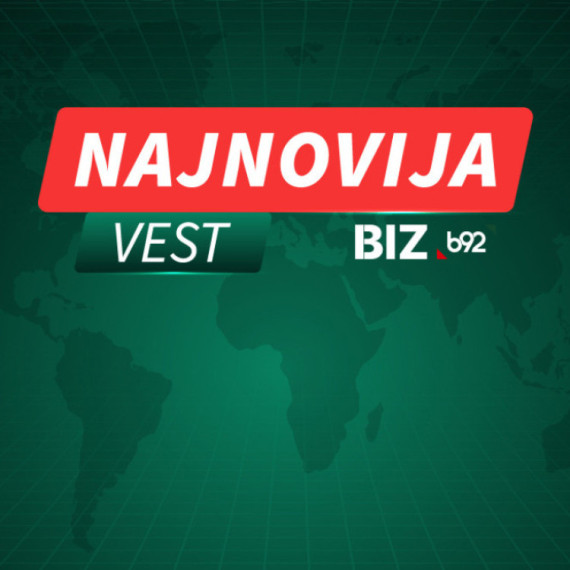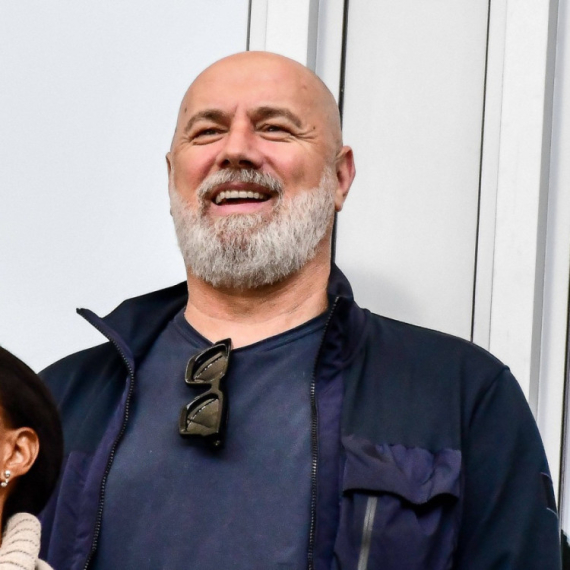FM: UN probe to reveal truth about organ trade
FM Vuk Jeremić said Wednesday that an investigation into Kosovo organ trafficking must be conducted under the mandate of the UN Security Council.
Wednesday, 29.02.2012.
12:06

FM Vuk Jeremic said Wednesday that an investigation into Kosovo organ trafficking must be conducted under the mandate of the UN Security Council. He also cautioned about serious violations of human rights in Kosovo. FM: UN probe to reveal truth about organ trade Addressing the UN Human Rights Council, Jeremic said that a credible and transparent investigation could only be conducted under the auspices of the UNSC. "Those who are tasked with following the trail of evidence must not be impeded in their work in any way - whether on temporal or territorial jurisdiction pretexts, or on the scope or legitimacy of their mandate to do so. In our view, this cannot be achieved without the explicit support of the Security Council," the Serbian minister pointed out. Members of the ethnic Albanian KLA are accused of kidnapping and and removing body parts of their civilian victims in 1999 and 2000 - mostly Serbs from Kosovo. Jeremic noted that Serbia calls on EU Special rapporteurs to devote particular attention to this case, and urges the member states to support Serbia's initiative to draw up a convention on organ trafficking in the scope of the UN. Saying that the Council of Europe has made tentative efforts to draft an appropriate convention, Jeremic added that Serbia was ready to initiate a process of negotiations leading to the adoption of legally-binding instrument against harvesting and trafficking in human organs, tissues and cells under the auspices of the UN. "It is imperative for the full truth to come out," he stressed. “We have to uncover the destiny of hundreds of missing Kosovo Serbs we believe to have been the victims of these unspeakable acts. We must determine who gave the orders, and who carried them out. The covenant of silence must be broken,” the minister stressed. He recalled that more than a year has passed since the Council of Europe released a deeply disturbing report entitled "Inhuman Treatment of People and Illicit Trafficking in Human Organs in Kosovo", which contains detailed allegations of harvesting and smuggling of human organs before, during and after the 1999 conflict, and called on the UN member states to support Serbia's initiative. “In our view, provisions ought to ensure that such atrocities are designated as crimes against humanity; when committed during an armed conflict, a war crime as well. We respectfully urge the member states to join us,” Jeremic explained. He warned the UN Human Rights Council about violation of human rights of Serbs in the southern province of Kosovo, recalling that with the adoption of Security Council Resolution 1244 in 1999, the administrative authority was transferred to UNMIK, which assumed responsibility for human and minority rights. “On February 17, 2008, the local ethnic-Albanian leadership unilaterally declared secession of the territory, and assumed UNMIK prerogatives without the consent of the Security Council,” Jeremic noted. “Multiple reports by successive UN Secretary-Generals have indicated widespread and persistent violations of the Kosovo Serb community's basic human rights. These include numerous ethnically-motivated murders, assaults, home invasions, burglaries, vehicle stoning, arson, private property usurpation, desecration of holy sites and cemeteries, and attacks on pilgrims and returning internally displaced persons,” the foreign minister underlined. He pointed out that the situation was confirmed in reports and papers issued over the past years by UNESCO, UNDP, OSCE, Council of Europe, Amnesty International, Human Rights Watch, Freedom House, and Transparency International-and many others. Jeremic underlined that the Serbian Government was fully committed to overcoming the few remaining challenges in the field of human and minority rights. "The Republic of Serbia has taken many concrete steps to further these goals in Southeast Europe-with our President, Boris Tadic, leading the way in closing some painful chapters of the recent history," the minister noted. According to him, a Donors Conference will be held in Sarajevo on April 24th that would help secure the funds for the assistance to refugees and internally displaced persons in the region and called on the international community to support the efforts. "I hope the international community will continue to support our efforts, thus greatly contributing to the process of regional reconciliation," Jeremic said. The Serbian foreign minister is taking part in the 19th Regular Session of the UN Human Rights Council, during which he will have a series of bilateral meetings with the foreign ministers of Denmark, the Netherlands, the Irish minister of European affairs, and colleagues from Estonia, Malaysia, Uruguay, Vietnam and Congo. Vuk Jeremic (FoNet, file) Tanjug
FM: UN probe to reveal truth about organ trade
Addressing the UN Human Rights Council, Jeremić said that a credible and transparent investigation could only be conducted under the auspices of the UNSC."Those who are tasked with following the trail of evidence must not be impeded in their work in any way - whether on temporal or territorial jurisdiction pretexts, or on the scope or legitimacy of their mandate to do so. In our view, this cannot be achieved without the explicit support of the Security Council," the Serbian minister pointed out.
Members of the ethnic Albanian KLA are accused of kidnapping and and removing body parts of their civilian victims in 1999 and 2000 - mostly Serbs from Kosovo.
Jeremić noted that Serbia calls on EU Special rapporteurs to devote particular attention to this case, and urges the member states to support Serbia's initiative to draw up a convention on organ trafficking in the scope of the UN.
Saying that the Council of Europe has made tentative efforts to draft an appropriate convention, Jeremić added that Serbia was ready to initiate a process of negotiations leading to the adoption of legally-binding instrument against harvesting and trafficking in human organs, tissues and cells under the auspices of the UN.
"It is imperative for the full truth to come out," he stressed.
“We have to uncover the destiny of hundreds of missing Kosovo Serbs we believe to have been the victims of these unspeakable acts. We must determine who gave the orders, and who carried them out. The covenant of silence must be broken,” the minister stressed.
He recalled that more than a year has passed since the Council of Europe released a deeply disturbing report entitled "Inhuman Treatment of People and Illicit Trafficking in Human Organs in Kosovo", which contains detailed allegations of harvesting and smuggling of human organs before, during and after the 1999 conflict, and called on the UN member states to support Serbia's initiative.
“In our view, provisions ought to ensure that such atrocities are designated as crimes against humanity; when committed during an armed conflict, a war crime as well. We respectfully urge the member states to join us,” Jeremić explained.
He warned the UN Human Rights Council about violation of human rights of Serbs in the southern province of Kosovo, recalling that with the adoption of Security Council Resolution 1244 in 1999, the administrative authority was transferred to UNMIK, which assumed responsibility for human and minority rights.
“On February 17, 2008, the local ethnic-Albanian leadership unilaterally declared secession of the territory, and assumed UNMIK prerogatives without the consent of the Security Council,” Jeremić noted.
“Multiple reports by successive UN Secretary-Generals have indicated widespread and persistent violations of the Kosovo Serb community's basic human rights. These include numerous ethnically-motivated murders, assaults, home invasions, burglaries, vehicle stoning, arson, private property usurpation, desecration of holy sites and cemeteries, and attacks on pilgrims and returning internally displaced persons,” the foreign minister underlined.
He pointed out that the situation was confirmed in reports and papers issued over the past years by UNESCO, UNDP, OSCE, Council of Europe, Amnesty International, Human Rights Watch, Freedom House, and Transparency International-and many others.
Jeremić underlined that the Serbian Government was fully committed to overcoming the few remaining challenges in the field of human and minority rights.
"The Republic of Serbia has taken many concrete steps to further these goals in Southeast Europe-with our President, Boris Tadić, leading the way in closing some painful chapters of the recent history," the minister noted.
According to him, a Donors Conference will be held in Sarajevo on April 24th that would help secure the funds for the assistance to refugees and internally displaced persons in the region and called on the international community to support the efforts.
"I hope the international community will continue to support our efforts, thus greatly contributing to the process of regional reconciliation," Jeremić said.
The Serbian foreign minister is taking part in the 19th Regular Session of the UN Human Rights Council, during which he will have a series of bilateral meetings with the foreign ministers of Denmark, the Netherlands, the Irish minister of European affairs, and colleagues from Estonia, Malaysia, Uruguay, Vietnam and Congo.































Komentari 21
Pogledaj komentare